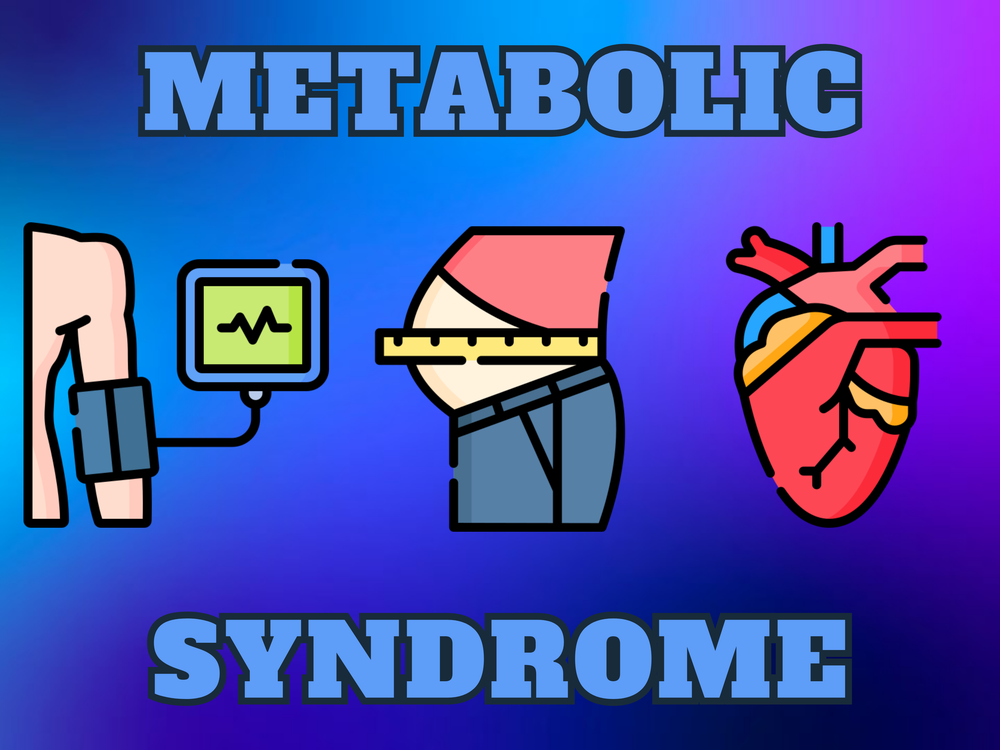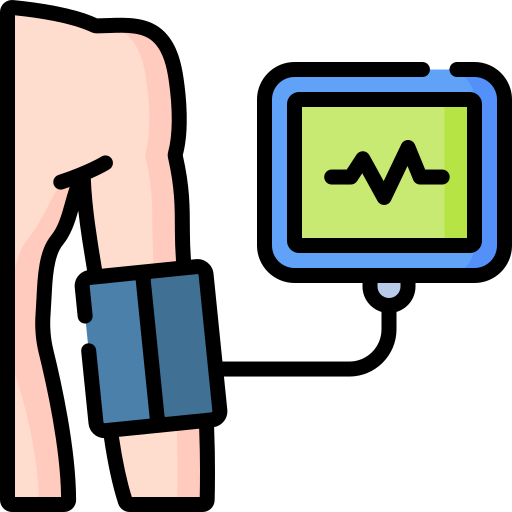
What Is It?
Do you know what metabolic syndrome is? Chances are, not only have you not heard of this disease, but you also probably have it. Metabolic syndrome is a group of conditions all directly caused by poor metabolic health and lifestyle. If you have 1 of the following 5 conditions, then you have metabolic syndrome:

Do You Have It?
In 2019, a study revealed that 88% of Americans have metabolic syndrome, meaning they have at least one of the above five conditions. In 2022, that number rose to 93% of adults.

This means that only 6.8% of adult Americans have proper metabolic health. If you break it down by age, just a mere 0.4% of people over the age of 65 were metabolically healthy. For peoples ages 20-34, which should be the healthiest demographic, only 17% of individuals had optimal health.
.png)
For reference, according to the CDC, 73.6% of Americans are overweight or obsese. For adults aged 20 or older, this breaks down to an obesity rate of 40.3%, and an overweight rate of 33.3%. As for children, 22.2% of adolescents (12-19) are obese, and and 20.7% of children aged 6-11 have obesity.

So this isn't just a weight issue. Assuming that everyone who is overweight or obsese has metabolic syndrome, that leaves 19% of people who think they are healthy just because they're not fat, but are actually ticking timebombs.

That 19% is probably higher, as there are a small subset of overweight individuals who are actually metabolically healthy. In contrast, "skinny-fat" or "TIFO" (Thin Outside, Fat Inside) people account for nearly a fifth of the American population.

What Does It Cause?
Sub-optimal levels of metabolic health is the root cause for many chronic diseases. In reality, your heart attack, cancer or stroke isn't the problem. Rather, it's a symptom of the problem, where the root cause problem is metabolic sydrome. Here are just some of the things that metabolic syndrome could lead to:

How Do I Prevent/Reverse Metabolic Syndrome?
That's a long list of potential futures should you continue down the road of metabolic dysfunction. Thankfully though, metabolic syndrome is easy to prevent, and even reverse. All of these conditions are in some way directly affected by lifestyle factors. Below are just 10 tips that could transform your health:

Sources
Do you know what metabolic syndrome is? Chances are, not only have you not heard of this disease, but you also probably have it. Metabolic syndrome is a group of conditions all directly caused by poor metabolic health and lifestyle. If you have 1 of the following 5 conditions, then you have metabolic syndrome:
- High blood pressure
- Greater than 120 systolic and 80 diastolic
- Elevated blood sugar
- Fasting glucose >= 100 mg/dL
- HgbA1c >= 5.7%
- Fasting insulin >= 5.0 μU/mL
- Large waist circumference
- Men: >= 102 cm (40 in)
- Women: >= 88 cm (35 in)
- High triglycerides
- Greater than 150 mg/dL
- Low HDL cholesterol
- Men: < 40 mg/dL
- Women: < 50 mg/dL

Do You Have It?
In 2019, a study revealed that 88% of Americans have metabolic syndrome, meaning they have at least one of the above five conditions. In 2022, that number rose to 93% of adults.

This means that only 6.8% of adult Americans have proper metabolic health. If you break it down by age, just a mere 0.4% of people over the age of 65 were metabolically healthy. For peoples ages 20-34, which should be the healthiest demographic, only 17% of individuals had optimal health.
.png)
For reference, according to the CDC, 73.6% of Americans are overweight or obsese. For adults aged 20 or older, this breaks down to an obesity rate of 40.3%, and an overweight rate of 33.3%. As for children, 22.2% of adolescents (12-19) are obese, and and 20.7% of children aged 6-11 have obesity.

So this isn't just a weight issue. Assuming that everyone who is overweight or obsese has metabolic syndrome, that leaves 19% of people who think they are healthy just because they're not fat, but are actually ticking timebombs.

That 19% is probably higher, as there are a small subset of overweight individuals who are actually metabolically healthy. In contrast, "skinny-fat" or "TIFO" (Thin Outside, Fat Inside) people account for nearly a fifth of the American population.

What Does It Cause?
Sub-optimal levels of metabolic health is the root cause for many chronic diseases. In reality, your heart attack, cancer or stroke isn't the problem. Rather, it's a symptom of the problem, where the root cause problem is metabolic sydrome. Here are just some of the things that metabolic syndrome could lead to:
- Heart attack
- Stroke
- Atherosclerosis
- Type 2 diabetes
- Obesity and weight gain
- Colorectal cancer
- Breast cancer
- Prostate cancer
- Pancreatic cancer
- Endometrial (uterus) cancer
- Liver cancer
- Non-Alcoholic Fatty Liver Disease (NAFLD)
- Polycystic Ovarian Syndrome (PCOS)
- Irritable Bowel Syndrome (IBS)
- Chronic Kidney Disease (CKD)
- Sleep Apnea
- Alzheimer's and dementia
- Chronic inflammation
- Hypothyroidism (Hashimoto's Disease)
- Hyperthyroidism (Grave's Disease)
- Depression and anxiety
- Increased C-reactive protein (CRP)
- Autoimmune diseases
- Artitis
- Kidney stone and gout
- Psoriasis, eczema, and skin tags
- Hormone imbalance
- Infertility
- Weakened immune system
- Worsening vision, macular degeneration, and cataracts
- Rapid aging
- Wrinkles
- Poor wound healing and easy bruising
- Insulin resistance and leptin resistance
- Cognitive decline
- Osteoporosis and osteopenia
- Low testosterone
- Low sex drive
- Erectile disfunction (ED)
- Miscarriages
- Poor quality and quantity sleep

How Do I Prevent/Reverse Metabolic Syndrome?
That's a long list of potential futures should you continue down the road of metabolic dysfunction. Thankfully though, metabolic syndrome is easy to prevent, and even reverse. All of these conditions are in some way directly affected by lifestyle factors. Below are just 10 tips that could transform your health:
- Always have a bottle of water with you
- Consider supplements, like Vitamin D, Omega-3s, or a multi-vitamin
- Follow the 3-2-1 rule for sleep
- 3 hours before bed: No food
- 2 hours before bed: No fluids
- 1 hour before bed: No screen time
- Limit intake of sugar sweetened beverages, alcohol, and caffeine
- Manage your stress and anxiety
- Prioritize vegetables, lean proteins, healthy fats, and fruits
- Read nutrition facts and ingredients labels, not marketing claims
- Reduce intake of refined sugars, starches, and oils
- Regular blood testing and doctor's visits
- Take a walk after meals

Sources
- FlatIcon
- National Heart, Lung, and Blood Institute
- Tufts
- Revitalize Metabolic Health
- Prevalence of Optimal Metabolic Health in American Adults: National Health and Nutrition Examination Survey 2009-2016
- Trends and Disparities in Cardiometabolic Health Among U.S. Adults, 1999-2018
- National Center for Health Statistics
- Mayo Clinic
- Cleaveland Clinic
- John's Hopkins Medicine